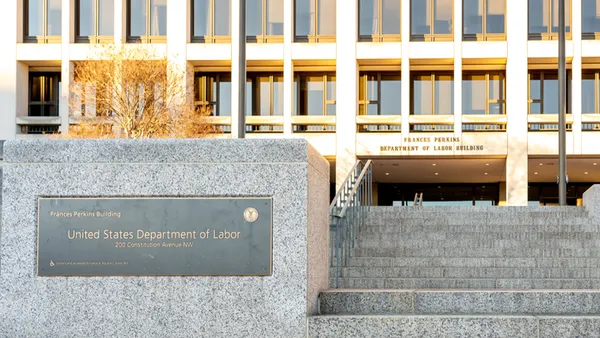Wellness has taken hold as an HR trend. It’s at least become a staple among the employees at MassMutual, the benefits provider based in Springfield, Mass.
The latest manifestation of that commitment focuses on mindfulness, a state of active, open attention on the present.
Explaining mindfulness
According to a commonly accepted definition, being mindful means observing your thoughts and feelings from a distance, without judging them as good or bad. Mindfulness means living in the moment and awakening to experience.
Scott Burke, an RN and health promotions coordinator MassMutual, says within the past year, mindfulness has been off to a very strong, albeit limited, start as part of the company’s wellness strategy.
“MassMutual understands the importance of corporate wellness and has a long history of supporting and promoting wellness,” says Burke. “Our mindfulness program is another example of that commitment.”
Mass Mutual partnered with the UMass Center for Mindfulness, which provides research-based insights, to implement these programs available to all employees.
According to Burke, mindfulness practices have become widely adopted in the recent past – be it among NFL players or veterans struggling with PTSD – and for good reason.
“Not only does practicing mindfulness help increase employees’ happiness and reduce stress, but it also promotes clear and creative thinking,” Burke says. “Additionally, companies that encourage mindfulness practices have a higher morale which leads to increased productivity.”
How to implement it
MassMutual offers a few primary programs focused on how emotional health via mindfulness is key to becoming a more productive, happy employee:
- Mindfulness Minutes – Created and distributed in-house, these brief at-desk video exercises are designed to encourage acceptability and presence in the workplace.
- Mindfulness curriculums – MassMutual offers its employees two classroom options: an eight-week in-depth mindfulness program, and an introductory, four-hour class.
In addition, there even are ongoing company-wide breathing exercises. Burke explains that MassMutual’s executive leadership team is passionate about the practice, and has facilitated breathing exercises during employee meetings.
Burke, who works within the HR department, credits MassMutual CEO Roger Crandall with pioneering mindfulness at their company. As part of the program launch, Crandall, who meditates daily, made a video that outlined how mindfulness has been beneficial in his life.
“I am very proud that our senior executive leadership team chose to bring in top notch people from the start,” he says. “Our senior level team sees the importance this can bring, as wellness programs are a hot topic out there. They didn’t flinch. They saw the benefits from the get-go.”
To get things started, MassMutual used the services of a mindfulness expert to create those “mindful minute” exercises, which focus on stress reduction practices such as breathing exercises, letting go of e-devices, taking a virtual vacation, etc.
Both primary training efforts are classroom-based, with the four-hour sessions open to around 200 employees at a time. The 8-week program, which constitutes a 2.5 hours class per week with one full-day session, is open to 40 employees at a time. Right now, it’s being offered monthly with plans to keep that schedule for the long-term.
Burke says that after experiencing the 8-week course, he came out with a profound appreciation for how mindfulness can positively affect your life – though it is not easy.
“For one thing, I learned I can be quiet and sit still and still be as productive as before,” he says, though he cautions that becoming mindful is not easy. “In fact, it’s hard work. But once you are willing to put in that hard work, you start seeing dividends.”
How have employees reacted? While Mass Mutual is a metrics-driven organization, it’s too early to have any meaningful statistics on feedback. He says some basic feedback provided out of the group classes demonstrated an improvement in happiness and a reduction in stress among attendees.
Anecdotally, Burke says it was very hard for people not to show up for another week during the 8-week program he attended. Participants wanted to be at every session.
“It became part of us,” he says. “People actually seemed sad to see the program end. The best part of it was people sharing their stories and finding out how mindfulness can be brought into your entire life, not just at work.”












